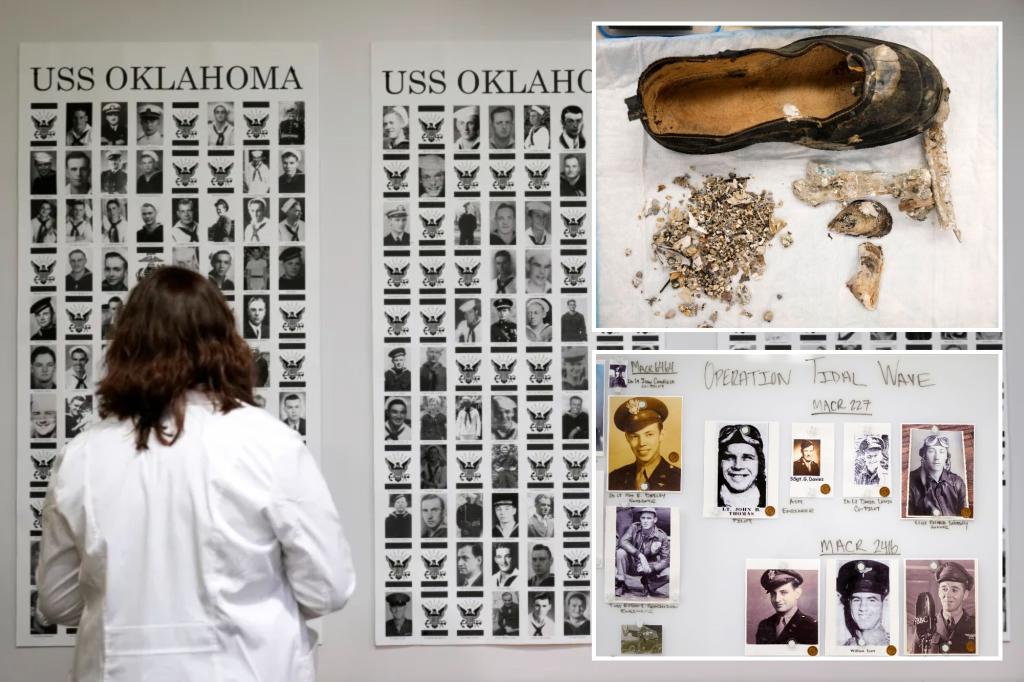The Defense POW/MIA Accounting Agency labs at Offutt Air Force Base and in Hawaii are working diligently to identify missing soldiers from past conflicts, such as World War II and the Korean War. The labs aim to provide closure to families who have lost loved ones in these conflicts by offering them the opportunity to give their relatives a proper burial. Through advancements in DNA technology and innovative techniques, the labs can identify more missing soldiers every year, with a goal of identifying 200 annually.
The labs’ work is crucial as remains buried on battlefields around the world deteriorate over time, leaving many soldiers unaccounted for. Despite this challenge, the experts are making progress in identifying missing soldiers, with a steady increase in identifications each year. The labs are focusing not only on World War II soldiers but also on those from other conflicts, totaling around 10,000 missing soldiers across various wars. The dedication and commitment of the lab staff are exemplified by their efforts to return fallen soldiers to their families.
One example of the labs’ impact is the case of Cpl. Charles Ray Patten, who died during the Korean War and was buried as an unknown soldier for decades. Thanks to the labs’ work, Patten was finally identified, allowing his cousin, Donna Kennedy, to bury him with full military honors alongside his father and grandfather in their family cemetery in Missouri. Kennedy expressed her feelings of loss and love for a relative she never had the chance to know, highlighting the emotional weight of these long-overdue burials.
The importance of the labs’ work extends beyond simply identifying missing soldiers; it is a promise to families that their loved ones will never be forgotten. Each identification is a step towards honoring the sacrifice these soldiers made to protect their country’s freedom. The process of identifying soldiers involves piecing together historical records, examining bones and objects found with the remains, and conducting DNA tests to confirm identities. This meticulous work can take months or even years to complete, as experts navigate the complexities of each case.
Every soldier brought to the lab has a unique story waiting to be uncovered. Some cases are more straightforward, such as the Marine from World War I with his intact wallet containing identifying information. However, many cases require extensive research and analysis to determine the identities of the soldiers. The labs use a variety of techniques, from comparing bones to chest X-rays to analyzing dietary habits, to piece together the puzzle of someone’s identity. Despite the challenges and obstacles faced by the lab staff, their commitment to returning fallen soldiers home to their families remains unwavering.
The work being done by the Defense POW/MIA Accounting Agency labs is not just about identifying missing soldiers; it is about preserving the memory and legacy of those who made the ultimate sacrifice for their country. By offering families the chance to give their loved ones a proper burial, the labs are providing closure and healing to generations of Americans who have long wondered about the fate of their relatives. As Memorial Day and other milestones approach, the labs continue their mission to bring fallen soldiers home and ensure that their sacrifice is never forgotten.













